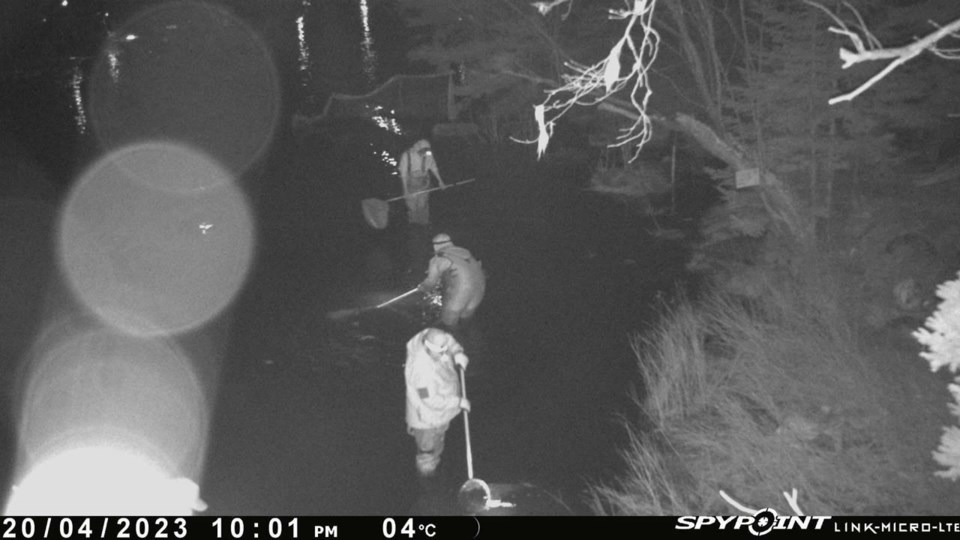HALIFAX — Nova Scotia's representative in the federal cabinet says the public service strike has made it difficult for Ottawa to enforce conservation rules for the highly contentious and lucrative baby eel fishery.
Sean Fraser, the federal immigration minister, was commenting Thursday on a recently imposed moratorium on baby eel fishing, which was imposed on April 15 for 45 days because of alleged poaching and reports of violence among harvesters.
"The work stoppage does have an impact on our ability to enforce the rules that are in play," Fraser said in an interview from his office in Ottawa. "It's essential that we protect the conservation interest, but this problem is going to be solved by negotiating a deal that allows people to return to work."
The transparent eels, witch are worth more than $4,000 per kilogram, are fished at night in Nova Scotia's tidal rivers each spring as they migrate inland from the ocean. They are typically sold to buyers in Asia where they are grown for food.
Four days after the Fisheries Department imposed the moratorium, about 155,000 member of the Public Service Alliance of Canada walked off the job, demanding higher wages, better remote working rules and clearer seniority rules.
Fraser, who represents the Nova Scotia riding of Central Nova, said the essential services role of Fisheries officers is limited to situations where a person's life is at risk, or something of a similar scale.
"These challenges (on the water) are not easy to monitor at the best of times," he said. "And when our ability to enforce is reduced as a result of a public service strike, our capacity to enforce the laws that do exist is further diminished."
Scott Mossman, president of a union local the represents Fisheries officers, said his colleagues who are still on the job are required by essential service legislation to ensure the "security and safety of Canadians."
"Conservation and regular patrols wouldn't fall under that definition," he said. As part of their essential services, Fisheries officers are looking out for contaminated fish, clams, mussels and oysters because that could pose a threat to the health of Canadians, he added. "That's what we deem as essential."
Mossman, a Fisheries officer, said poaching is probably on the rise, adding that the price of baby eels has risen from about $700 a kilogram ten years ago. "It's quick money and it's not expensive to get into," he said.
Fraser said the RCMP or local police should be called if violence breaks out.
"My expectation is that if people are facing risks that endanger their safety or their lives, this is no longer at DFO issue, but also an issue for the police of jurisdiction," he said.
"When we see a larger-scale participation by unauthorized harvesters who are potentially contributing to the threat of violence on the river, that's a problem that should concern all of us in Nova Scotia."
Some licence holders in the fishery have been sending photos to the Fisheries Department that allegedly show people recently fishing for baby eels — also known as elvers — despite the temporary ban.
Meanwhile, some commercial fishers say most of what they contend is poaching is done by First Nations fishers who are not part of federal agreements.
Advocates for Indigenous treaty rights, however, say it would be wrong to say these Indigenous fishers are carrying out an illegal fishery, because they have a treaty right to fish for a moderate livelihood, as spelled out in a 1999 ruling from the Supreme Court of Canada.
For the second consecutive year, Ottawa this year gave Indigenous fishers 14 per cent of the commercial quota in recognition of that treaty right.
Commercial harvesters have argued that with little or no enforcement of the moratorium, the only ones benefiting from the fishing ban are the poachers.
The fishery was also shut down in 2020 amid heavy poaching, some of which was carried out by people from outside the province.
This report by The Canadian Press was first published April 27, 2023.
Michael MacDonald, The Canadian Press



